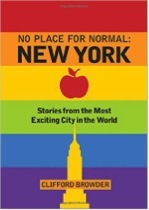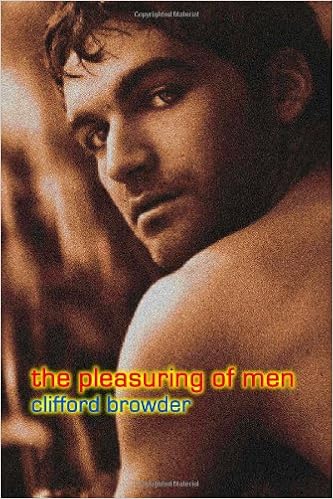Yes, the unthinkable happened: Trump won! Last night hundreds of protesters marched from Union Square to the Trump Tower on Park Avenue, shouting "We reject / The president elect" and similar slogans; some violence resulted and there were 65 arrests. Similar protests were staged in numerous other big cities throughout the country. But let's face it: protests or not, he's the president elect. And big cities aren't what he and his followers are all about; they're about small towns and rural areas, and stricken regions of the Rust Belt that feel neglected and abandoned by urban elites and the establishment.
For a blue collar worker in the Rust Belt -- say, in Akron, Ohio -- big cities are alien entities, even the enemy. Everything about New York, the city I live in and celebrate, says special, glitzy, unique. The things most associated with it -- media, publishing, fashion, theater, museums, and so on -- suggest a world that Rust Belt workers are shut out of: a world of glittering night clubs and fancy restaurants frequented by hedge fund managers and celebrities; surging, impersonal crowds; luxury housing; Broadway shows at phenomenal prices; a hodgepodge of flourishing immigrant communities that speak strange languages; and towering high-rises whose glass pinnacles vanish into light. This is the City That Never Sleeps, a mecca of hustlers (unless, like the Donald, they're born here), a citadel of money, power, diversity, and success.
Never mind that I and many New Yorkers get (and need) plenty of sleep, don't hobnob with celebrities, live in rent-stabilized apartments, and live on a budget. The fact remains, New York comes across as BIG, BIG, BIG, a nest of glamour and success. How could people in the Rust Belt and elsewhere, just managing to get by financially and remembering the better days of long ago, not resent New York and all it stands for, and rally to that oddball New Yorker, Donald Trump, who speaks to their need? With hindsight, it seems almost inevitable, but the polls and the pundits missed it. No one I know in New York -- mostly middle-class professionals -- voted for Trump, but ours is a world of security and achievement, far removed from the stricken districts that voted for Trump.
What now? For the moment we have to show the world how a real democracy works. The loser in an election congratulates the winner (Hillary did, and graciously), and the retiring president works with his successor to arrange a smooth transition (Obama is doing just that, while observing that Bush had done the same for him eight years ago). Demonstrations in the streets, no doubt, but no riots, no assassination attempts, no military takeovers; that's not our way. I heard Obama's brief post-election message to the nation; it was moderate and reasonable. And I heard Hillary's speech to her followers here in Manhattan; it was heartfelt -- a quality that I didn't get enough of in her speeches during the campaign.
Hillary is one tough cookie, but the country wanted someone anti-establishment, and she is establishment to the core. So it goes in politics. The ones I most sympathize with are the women who supported her, often with tears of joy in their eyes, many of whom now wept through the night of the election, as the results came in; this was not their year, and they aren't just appalled by her defeat, but also by the fact that she lost to a man who has boasted of groping women. (Hillary's husband had done the same -- more of the baggage she carried -- but he was never caught boasting of it on tape.)
A surprise? Yes, the outcome was a surprise, though not the biggest one ever. The biggest in my memory was in 1948, when Harry Truman, the Democratic president, fooled everyone by defeating Thomas Dewey, the Republican. While this 2016 race was known to be a close one, no one back then thought Truman could win, but he campaigned doggedly, barnstorming around the country by train, speaking to crowds even in whistle stops. So sure were the media of a Republican victory that they didn't bother to do polls during the last month of campaigning. Only a few vigilant observers noticed that the crowds that Truman drew were getting bigger and bigger. The rabidly pro-Dewey Chicago Tribune even ran a premature headline, DEWEY DEFEATS TRUMAN. When Truman won, he posed with the headline, flashing a broad grin. As vice-president Harry had also posed while playing an upright piano at the Washington Press Club Canteen for servicemen in 1945, with newly minted Hollywood star Lauren Bacall reclining on top of the piano -- another memorable Truman photo.
One last note: When Truman won, people groaned. Many voters thought he wasn't up to the job, but he turned out to be a vigorous and successful president whom even Republicans today admire. On the wall in his office was a famous sign: THE BUCK STOPS HERE. An omen for the future? Who knows?
* * * * * *
My poems: For five acceptable poems, click here and scroll down. To avoid five terrible poems, don't click here. For my poem "The Other," inspired by the Orlando massacre, click here.
My books: No Place for Normal: New York / Stories from the Most Exciting City in the World, my selection of posts from this blog, has received these awards: the Tenth Annual National Indie Excellence Award for Regional Non-Fiction; first place in the Travel category of the 2015-2016 Reader Views Literary Awards; and Honorable Mention in the Culture category of the Eric Hoffer Book Awards for 2016. For the Reader Views review by Sheri Hoyte, go here. As always, the book is available from Amazon and Barnes & Noble.
 |
The Pleasuring of Men (Gival Press, 2011), my historical novel about a young male prostitute in the late 1860s in New York who falls in love with his most difficult client, is likewise available from Amazon and Barnes & Noble.

Coming soon: As announced, the wonders of Staten Island's north shore, which snooty Manhattanites had better not sneer at.
© 2016 Clifford Browder